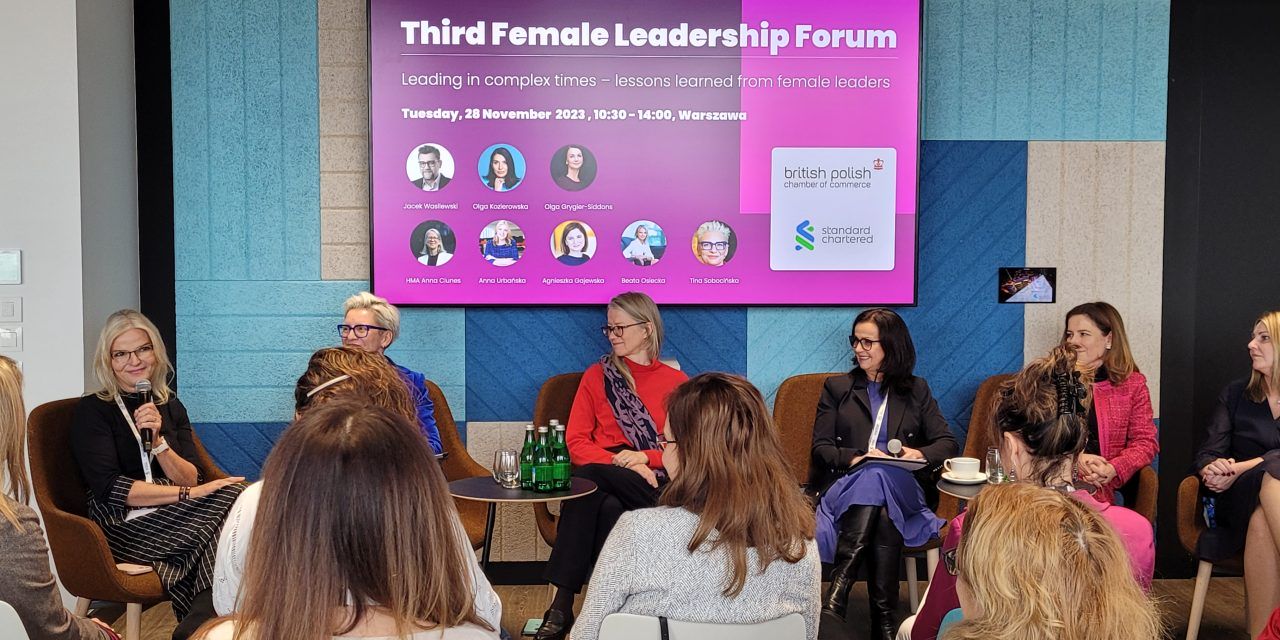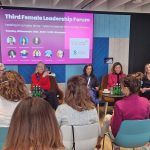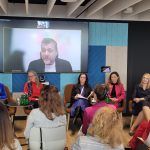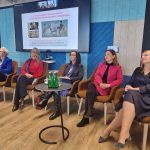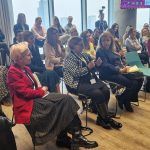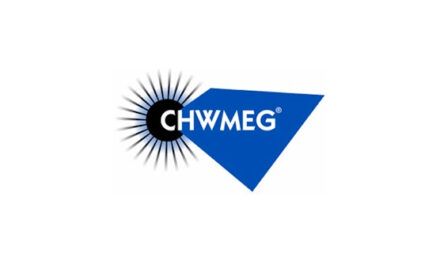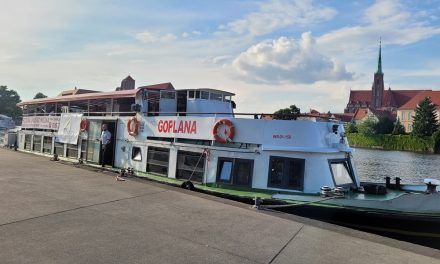The Third BPCC Female Leadership Forum, themed Leading in complex times – lessons learned from female leaders, took place on Tuesday, 28 November 2023 at the Warsaw offices of Standard Chartered’s global business hub.
As in past years, the forum aimed to explore women’s significant contributions to shaping new leadership standards. Recognising the importance of the male perspective in this discourse, the event emphasised the collaborative effort required for fostering effective leadership.
Throughout the Female Leadership Forum series, engaging narratives are shared about resilient female leaders navigating challenging and uncertain times. Participants reflected on the stories of inspirational female leaders, focusing on the strengths they demonstrated, their approaches to overcoming setbacks, and the unique qualities that set them apart. The overarching goal was to extract valuable lessons to empower individuals to thrive in today’s complex landscape.
Paweł Siwecki, BPCC CEO, welcomed participants, and introduced Jacek Wasilewski, lecturer at the University of Warsaw who gave a short presentation about contemporary pop culture narratives about women’s place in society. “A woman has to fight for her position – she has to overcome fear of the unknown and people’s negative opinions and their lack of faith,” said Dr Wasilewski. He compared the male and female leader’s journey, and the social double standards regarding behaviour which are less tolerant of female leaders who break norms. Independence – being able to act on her own terms – is the goal for women heroines in popular culture, he said.
Business mentor and former CEO of PwC in the CEE region Olga Grygier-Siddons introduced the panellists – Anna Clunes, HM Ambassador of Great Britain to Poland; Agnieszka Gajewska, partner, Global Government and Public Services Leader, PwC; Beata Osiecka, CEO and MD, Kinnarps Poland, Tina Sobocińska; HR4future HR strategic advisor and Anna Urbańska, CEO, Standard Chartered Poland. Ms Grygier-Siddons spoke about geo-political risk, climate change and technology and the risks posed by AI – all of which contribute to complexity which makes leadership more challenging.
In the first round of questions, panellists named the female leaders that inspired them most.
Ms Clunes mentioned Jacinda Arden – the former prime minister of New Zealand, who was “clear about bringing compassion and inclusion, and living the values she stood for”. She mentioned the things she did that were inspiring – bringing indigenous New Zealand into the country’s society, and implementing a well-being budget; trying to pioneer a different way of governing, changing the terms of being a prime minister, bringing compassion into the heart of government. Ms Clunes quoted Ms Arden as saying “You would not ask a man about babies – do not ask a woman about babies.” This has prompted Ms Clunes to take the default assumption that a powerful woman doesn’t have to have a partner or children. “Jacinda Arden does not shy away from who she is.”
Anna Urbańska chose her own childhood teacher and mentor. “There’s always a strong focus on money and relations in men’s careers. But teaching children – you have to believe in them, in their potential. “My teacher realised that I had potential, which my own parents never did – teaching me English – she was strict and demanding, but it helped me grow and develop. Put effort into your life and work, and you will definitely see the fruits. She instilled a strong work ethic in me.” Ms Urbańska said that today’s world expects from leaders the ability to explain complex life in simple terms. “Simplification in life is needed, as is a strong moral background,” she said.
Agnieszka Gajewska cited former US Secretary of state Madeleine Albright as a woman who would speak up, making people accountable. “She came to politics late in life, took a long time to develop a voice, now that she has it, she won’t be silenced. Ms Albright’s life was shaped by her having to flee Czechoslovakia, from the Nazis and the Communists; she made it possible for Poland, Hungary and Czech Republic to join NATO – her intervention in the Balkan wars was crucial, as were decisions she made as UN ambassador. When she spoke at Warsaw University in 2019, about populism in Central and Eastern Europe, she went in hard on us for voting for populists. Do you want to go for politicians who offer simple answers to disguise their own agenda?” Ms Gajewska said, “When Madeleine Albright walked into her first meeting of the UN Security Council, there were 15 seats, 14 men were all looking at her. Pushing the female agenda at the UN was risky at the time. Madeleine Albright was short, old, her husband had just left her – but she was strong,” said Ms Gajewska. “You have to be comfortable to talk about things that other people are not comfortable talking about.”
Beata Osiecka chose Iwona Kozera, who set up Fundacja Liderek Biznesu (foundation of female business leaders). “Iwona gives space for everyone to talk; she makes everyone feel respected, from a CEO to assistant; she’s focused on the mission, brings discussions back on track, and always admits not knowing what she doesn’t know. Her approach to leadership is based on moderating teamwork – moderating people to reach their goals within a given time, not pushing or scaring them. Criticising people belongs to the previous age of leadership. There is a comfort zone in which we can discuss things, we can bloom, we can be effective; we’re loyal to the mission, to Iwona, to the foundation. She has shown me how to moderate teamwork to achieve a given goal,” said Ms Osiecka.
Tina Sobocińska recognised the campaign initiated and run by Katarzyna Rozenfeld – Women’s Vote (Kobiety na wybory). “She saw a big challenge ahead of the parliamentary elections. Polling suggested that every second woman wasn’t intending to vote. So she used her personal brand to gather volunteers – men and women – empowering great talents to create a high-performing team. She created the ‘I vote because…’ social-media campaign. It was non-political, and carried out pro-bono. The campaign had outstanding results, securing 53 million views across the media and social media; employing great artists (130 of them), with ads visible across the channels and billboards, and all done for zero złotys. The outcome was excellent, as 73.7% of women voted on the day – more than men (72.0%). Katarzyna is fully engaged but never competitive. She redefines roles – not by pushing, not by being transactional, but by being transformational,” said Ms Sobocińska.
In the next round, Agnieszka Gajewska said that in a complex world you have to take risks – so you have to be courageous enough to be able to try and fail. “Women tend to be perfectionists, they don’t like losing, so they tend not to take risks,” she said. Encouragement is the answer; the root of that word is in ‘courage’. “To encourage others, you have to show courage yourself,” she said.
Tina Sobocińska spoke about the importance of developing networking skills in structured ways, Networking, she said, brings value, helps us grow – “but it’s not natural in our Polish culture. We see it as transactional, we network when we need help or are in trouble – but we should develop it when we are curious, and not just when we need advice. We should think about our networking skills, and understand what we expect from different networks,” she said.
Beata Osiecka stressed the importance of resilience. “People are becoming weaker; there’s the, risk that we could become weak. We must find this balance. Less fragile through sport. Alongside courage, I’d place curiosity. It’s also about going out of your comfort zone, being brave. Being authentic is also important. We don’t have to be young or in high heels; admit you’re having a bad day, admit you don’t know something, or that you have a headache. Being authentic builds trust and inner power over the long term,” she said.
Anna Clunes spoke of the importance of perseverance. “With the change of government in Poland and the situation in Ukraine, I have to focus on both the big picture and on small details. You just have to keep going. Failure isn’t an option. Climate change, democracy, injustice – giving up is not an option. Authenticity is an important skill – knowing yourself. We are at our most powerful if we share our vulnerability with the people we work with… getting on with it is key,” she said.
There followed questions and comments from the audience, with many fascinating points made.
These included the loneliness of a leader, and the importance of creating leadership teams, rather than seeing leaders like as stars. There was a fascinating question directed at Anna Clunes, who had worked with Queen Elizabeth II, about the characteristics of the late monarch. Ambassador Clunes replied that because the queen could not say much in public, she was seen as a safe space; the advice she gave in private, however, was taken seriously by world leaders who would really value what she would say. Her longevity at the top table meant that people had great respect for her.
Ms Grygier-Siddons named Margaret Thatcher a role model from the 1980s – “This lady’s not for turning” being a famous quote that demonstrated her resilience and courage. Ms Clunes, asked about one change that could dramatically improve women’s lot is having a law that makes men responsible for washing. She also spoke about the importance of recognising the challenges of wellbeing and mental health that people have in their lives.
Agnieszka Gajewska shared this tip about chairing meetings. “Proactively reach out to women in the room. Ask them. Those sitting in the corner of the room. You will discover diamonds at the end of the table. Don’t just listen to the views of those who want to speak out, but also to the quieter persons in the room,” she said.
After the Q&A session, there was ample time for networking and exchanging business cards over a light lunch.
The Forum successfully provided a platform for sharing insights, experiences and wisdom, fostering a collaborative spirit that will contribute to advancing leadership in today’s rapidly changing business landscape. The BPCC would like to thank Standard Chartered for hosting the event, Olga Grygier-Siddons for moderating the panel, the wonderful panellists and the large number of participants who made this event such as success. We look forward to future engagements that further promote diversity and excellence in leadership






